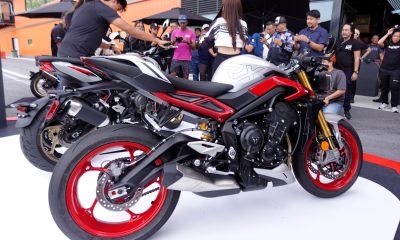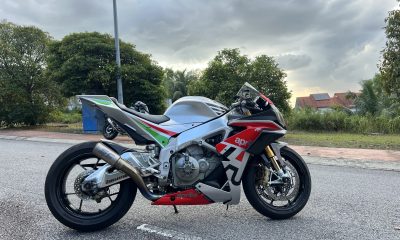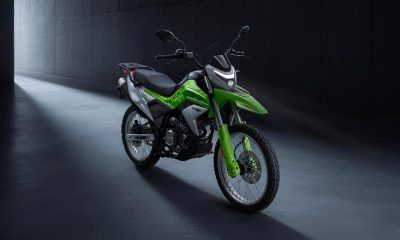As Malaysia makes ABS mandatory for motorcycles 150cc and above starting this year, here’s why this safety feature is crucial in reducing accidents and saving lives on the road.

Subscribe to our Telegram channel for instant updates!
Starting January 2025, all newly registered motorcycles in Malaysia with engine capacities of 150cc and above must come equipped with Anti-Lock Braking Systems (ABS). This mandate, announced by Deputy Prime Minister Datuk Seri Dr. Ahmad Zahid Hamidi, marks a significant milestone in Malaysia’s efforts to reduce road fatalities, especially among motorcyclists.
The announcement was made during the opening of the 2024 Asian Road Safety Conference (CARS) held in Kuala Lumpur, where Ahmad Zahid emphasized that motorcyclists accounted for a staggering 65% of road deaths in Malaysia last year. As a response to these alarming figures, the government is stepping up safety regulations and ABS is right at the centre of that mission.

What is ABS?
The Anti-Lock Braking System (ABS) is a modern safety feature designed to prevent a motorcycle’s wheels from locking up during sudden or hard braking. When a wheel locks, the bike can skid out of control, a dangerous scenario especially on wet or slippery surfaces.
ABS works by using sensors to monitor wheel speed. If it detects that a wheel is about to lock up, it automatically reduces brake pressure momentarily, allowing the wheel to continue rotating and helping the rider maintain control.
Why Is ABS So Important? Here’s a closer look at how ABS improves motorcycle safety.

Prevents Wheel Lock-Up
During emergency braking, ABS ensures that the wheels don’t stop rotating completely. This helps the rider stay upright and avoid skidding, which is one of the leading causes of motorcycle crashes.
Maintains Control & Stability
ABS helps riders retain steering control during panic braking, allowing them to potentially steer around a hazard instead of crashing into it.
Reduces Stopping Distance
In many situations, especially on wet roads, ABS can shorten braking distance, helping prevent rear-end collisions or falls due to skids.
Reduces Accident Severity
According to a World Health Organization (WHO) report cited by the Deputy Prime Minister, ABS technology can reduce fatal motorcycle crashes by 31%. This is especially relevant in Malaysia, where motorcycles are the most vulnerable vehicles on the road.
Builds Rider Confidence
ABS provides peace of mind, particularly for new or less experienced riders, as well as older riders who may not react as quickly in emergency situations.
Malaysia’s Road Safety Challenge
Although Malaysia’s road fatality rate dropped from 27 per 100,000 people in 2000 to 22.5 in 2019, the country still ranks among the highest globally. With over 60% of road deaths involving motorcyclists, the need for stricter safety measures is urgent.
Mandatory ABS is a proactive step that aligns Malaysia with global best practices. In many European countries, ABS is already required on most new motorcycles, and the results have been promising as fewer accidents, less severe injuries, and ultimately, more lives saved.

Final Thoughts
While no safety system can prevent all accidents, ABS significantly improves a rider’s chances of surviving a sudden stop or slippery situation. With the new ruling set in motion for 2025, Malaysia is prioritizing rider safety and rightfully so.
As road users, riders still play the biggest role in ensuring their safety. But with ABS, they now have an extra layer of protection, one that could mean the difference between a close call and a tragedy.
If you’re planning to purchase a new motorcycle soon, make sure it’s ABS-equipped, not just because it’s mandatory, but because your safety is worth it.































Facebook
Instagram
X (Twitter)
YouTube
LinkedIn
RSS